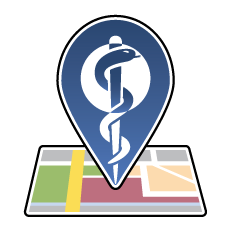Social: #ThyroidAwarenessMonth, #ThyroidAwareness
Twitter: @TheAACE
Facebook: @TheAACE
Website: www.thyroidawareness.com
The thyroid gland is a small, butterfly-shaped gland located in the base of the neck just below the Adam's apple. Although relatively small, the thyroid gland plays a huge role in our body, influencing the function of many of the body’s most important organs, including the heart, brain, liver, kidneys and skin. Ensuring that the thyroid gland is healthy and functioning properly is vitally important to the body's overall well-being.
When Things Go Wrong
The HPT axis is a highly efficient network of communication. Normally, the thyroid doles out just the right amount of hormone to keep your body running smoothly. TSH levels remain fairly constant, yet they respond to the slightest changes in T4 levels and vice versa. But even the best networks are subject to interference.
When outside influences such as disease, damage to the thyroid or certain medicines break down communication, your thyroid might not produce enough hormone. This would slow down all of your body’s functions, a condition known as hypothyroidism or underactive thyroid. Your thyroid could also produce too much hormone sending your systems into overdrive, a condition known as hyperthyroidism or overactive thyroid. These two conditions are most often features of an underlying thyroid disease.
When considering thyroid disease, doctors ask two main questions: First, is the thyroid gland inappropriately producing an abnormal amount of thyroid hormone? And second, is there a structural change in the thyroid, such as a lump—known as a nodule —or an enlargement—known as a goiter? Though one of these characteristics does not necessarily imply that the other is present, many thyroid disorders display both.
American Association of Clinical Endocrinologists
245 Riverside Avenue, Suite 200
Jacksonville, FL 32202
(904) 353-7878
(904) 404-4163 Fax
mgreen@aace.com
Materials available
Contact: Amy Johnson
Source: 2019 National Health Observances, National Health Information Center, Office of Disease Prevention and Health Promotion, U.S. Department of Health and Human Services, Washington, DC.

